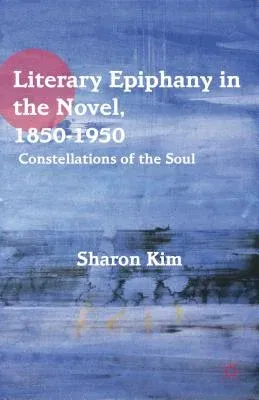S Kim
(Author)Literary Epiphany in the Novel, 1850-1950: Constellations of the Soul (2012)Hardcover - 2012, 14 September 2012

Qty
1
Turbo
Ships in 2 - 3 days
In Stock
Free Delivery
Cash on Delivery
15 Days
Free Returns
Secure Checkout

Print Length
201 pages
Language
English
Publisher
Palgrave MacMillan
Date Published
14 Sep 2012
ISBN-10
1137021845
ISBN-13
9781137021847
Description
Product Details
Author:
Book Edition:
2012
Book Format:
Hardcover
Country of Origin:
US
Date Published:
14 September 2012
Dimensions:
21.59 x
13.97 x
1.78 cm
ISBN-10:
1137021845
ISBN-13:
9781137021847
Language:
English
Location:
New York
Pages:
201
Publisher:
Weight:
362.87 gm